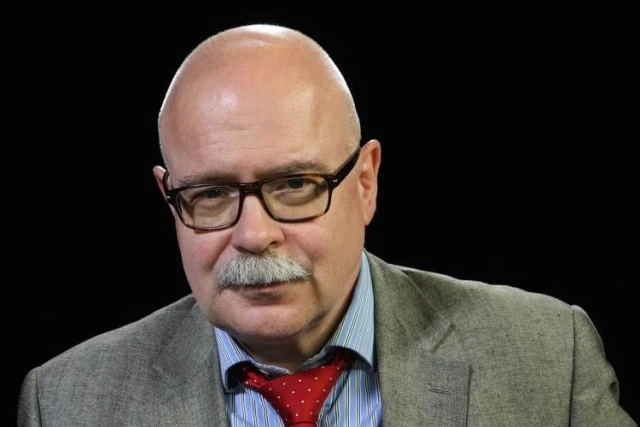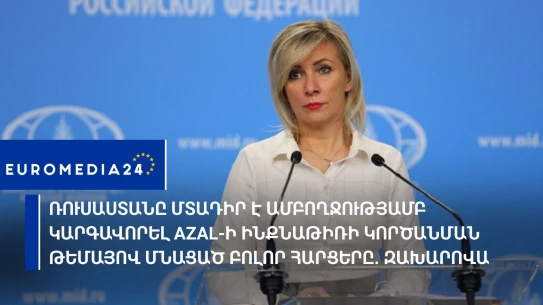In the Karabakh conflict situation, the CSTO showed its inherent weaknesses. Train



Russia intends to fully settle all other issues related to the downing of the AZAL plane. Zakharova
Peskov. Zelensky's offer to come to Moscow remains valid
A yellow level of weather danger has been announced in Moscow
Restrictions on incoming and outgoing flights at Moscow airports
New taxes for migrants are planned in Russia
The Moscow court upheld the decision to limit calls on Telegram and WhatsApp applications
Mariam Merabova was awarded the title of Honored Artist of the Russian Federation
The Moscow court detained one of the accused in the assassination attempt against General Alekseev.
Peskov. Russia needs a world where its interests are fully protected
As a result of a fire in a residential building in the center of Moscow, 35 people were evacuated (video)
In Russia, it is proposed to allow the deportation of migrants by court order to avoid medical examination
22 Ukrainian ATS were shot down in the sky of Russian territory at night. Ministry of Defense of the Russian Federation
The perpetrator of the assassination attempt against General Alekseev was arrested. Who is he (video)
A child swallowed a 14 cm long spoon (Photos)
Suspects of the Russian intelligence general's assassination attempt were arrested
The man attacked students and a police officer in the university dormitory. Ufa
If Macron really wants to have a serious conversation with Putin, he should just call. Lavrov
Zakharova warned Great Britain about possible damage to ships
Russian air defense systems destroyed 64 Ukrainian drones tonight
Zakharova accused the European Union of "robbery".